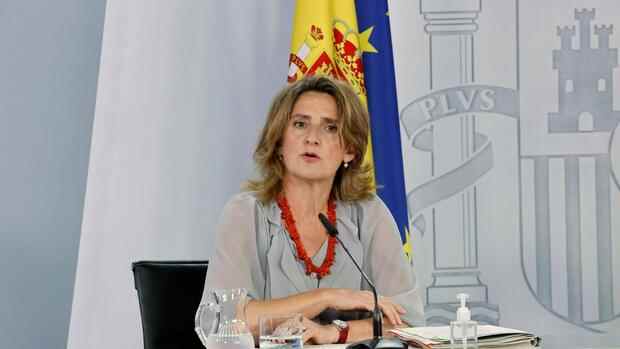Madrid, Lisbon There is massive resistance in the EU to the EU Commission’s proposals for a gas emergency plan. After negative comments came from Spain and Poland on Wednesday, the governments of Portugal and Greece criticized the proposals on Thursday. Italy and Hungary also disapproved of the project.
The reactions in Spain were particularly violent. “We are not willing to be forced into what we consider unfair,” said Spanish Environment Minister Teresa Ribera. “Unlike other countries, the Spanish have not lived beyond their means when it comes to energy,” she fumed, alluding to the financial crisis, when northern Europeans criticized Spain for its high debt.
Unlike Germany, Spain is not dependent on Russian gas. In the past, the country only got about ten percent of its gas imports from Putin’s empire. The situation is similar in Portugal, which has also announced that it will not implement the EU plans. Poland has already filled its gas storage facilities to 98 percent.
On Wednesday, the EU Commission asked all EU members to voluntarily reduce their gas consumption by 15 percent from August 1 to the end of March compared to the last five years. She was responding to fears that Russia could completely stop its gas supplies. According to the EU Commission, if all countries reduced their consumption by 15 percent, Europe would get through the winter relatively unscathed.
Top jobs of the day
Find the best jobs now and
be notified by email.
>> Read here: Europe in gas trouble: What are other EU countries doing to counter rising prices and supply risks?
If individual countries miss their reduction targets, the Commission, together with the European Council, in which the member states are organized, wants to prescribe savings. The proposal requires a qualified majority of EU members.
We are not willing to allow what we consider to be unfair to be imposed. Spain’s Environment Minister Teresa Ribera.
On Tuesday, EU energy ministers will hold a special meeting in Brussels to discuss the plan. However, it is still unclear how many countries will support the Iberians’ veto and whether the project then has any chance at all.
Spain: We weren’t even asked
In Madrid, the fact that Brussels wanted to impose cuts without first discussing them with the members was particularly resentful. “We have to talk, not impose,” Ribera said on Thursday morning.
Spain’s harsh opposition stands in unusual contrast to the country’s otherwise constructive stance on EU issues. Madrid is always keen to support European initiatives. However, the Spanish government has already shown stubbornness in the past when it comes to gas prices. She has been calling for Europe-wide reform for a long time and, together with the Portuguese government, achieved in early June that Spain and Portugal are allowed to artificially cap the gas price for a year.
The background was unusually high electricity prices in Spain, a result of the fact that the regulated electricity tariff is directly linked to the energy prices on the spot market. Many Spanish consumers and companies felt the price increases earlier and more severely than consumers in other countries. Madrid already feared for social peace.
In addition to the high market prices for gas, there were costs for state investments in regasification plants, which Madrid passed on to consumers and companies. The Spaniards had paid higher prices for years in order to be independent of individual gas suppliers such as Russia. Ribera absolutely wants to prevent this from being of any use to them now. She assured Spanish families: “Whatever happens, they will not see cuts in gas or electricity in their homes.”
Spain is largely independent of Russian supplies, also because the country built an LNG infrastructure early on.
(Photo: Reuters)
Spain has six regasification plants that process liquefied natural gas (LNG) supplies from the US and other overseas countries. This corresponds to a third of all European capacities.
Ribera therefore argues that Spain can show its solidarity with the EU much better by making its regasification capacities available to other countries. There is only a comparatively small pipeline from Spain to France and thus towards Northern Europe. However, LNG can be reloaded onto smaller ships in Spanish ports and then transported to countries with their own regasification plants, argues Madrid.
Portugal needs more gas because of the failure of the hydroelectric power plants
Portugal also offers its regasification capacities to other EU countries. Like Madrid, Lisbon announced opposition to the EU’s gas savings plan. The Portuguese Secretary of State for Environment and Energy, João Galamba, described the proposal as “disproportionate” and “unsustainable”. It cannot apply to Portugal.
The persistent drought has severely reduced the productivity of hydroelectric power plants, and gas-fired power plants have to fill the gap. If the amount of gas were to be reduced, this would impede the power supply in Portugal, according to Galamba.
Like Spain, Portugal is not dependent on Russian gas because it covers almost all of its consumption with LNG supplies.
More: “Have to prepare for a winter without Russian gas” – EU prepares for energy emergency
